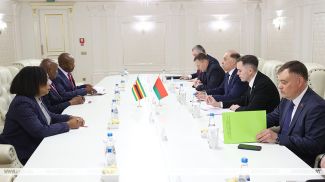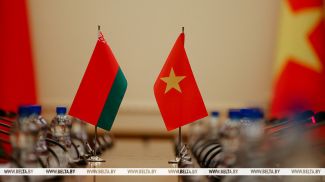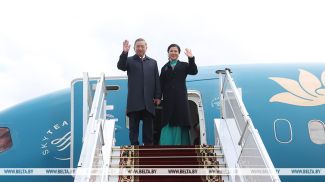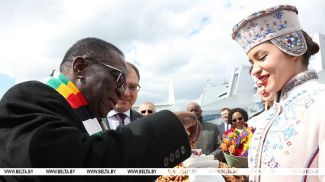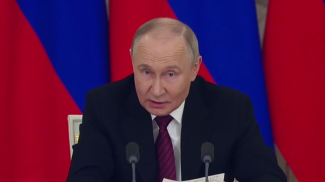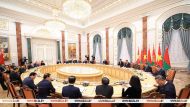MINSK, 24 June (BelTA) – Belarus' Deputy Minister of Foreign Affairs Sergei Aleinik has taken part in a videoconference of foreign ministers of the Central European Initiative (CEI) member countries, chaired by Montenegro, BelTA learned from the press service of the Ministry of Foreign Affairs
Taking part in the event were CEI Secretary General Roberto Antonione, foreign ministers and deputy foreign ministers of Albania, Bulgaria, Bosnia and Herzegovina, Hungary, Italy, Moldova, Poland, Romania, North Macedonia, Serbia, Slovakia, Slovenia, Ukraine, Croatia, Montenegro, Czech Republic, as well as WHO Regional Director for Europe Hans Henri P. Kluge, Vice President for Policy and Partnerships at the European Bank for Reconstruction and Development (EBRD) Pierre Heilbronn, representatives of the OSCE and the EU.
In his statement, Sergei Aleinik emphasized the importance of regional cooperation for mitigating the consequences of the coronavirus pandemic and promoting sustainable development of the region. He welcomed the measures taken by the CEI to respond to COVID-19, including in the area of project cooperation, and spoke in favor of active implementation of the CEI action plan for 2021-2023, including in such areas as digital transformation and connectivity, facilitating passenger and traffic flows, improving infrastructure and simplifying border procedures.
“The deputy minister confirmed Belarus' openness to dialogue with all interested partners. Sergei Aleinik pointed with regret to the destructive position of the European Union and its member states towards Belarus, which runs contrary to the spirit of good-neighborliness and cooperation. The deputy minister said that air blockade, sanctions and restrictions against a sovereign and independent state are absolutely unacceptable. Sergei Aleinik pointed out that such actions run afoul of international law and exacerbate tensions, undermine stability and security in our region,” the press service said.
The head of the Belarusian delegation emphasized that sanctions only lead to new dividing lines in Europe, which contradicts the fundamental goals of the CEI.
Established in 1989, CEI is a regional intergovernmental forum that currently includes 17 states: Albania, Belarus, Bulgaria, Bosnia and Herzegovina, Hungary, Italy, Moldova, Poland, Romania, North Macedonia, Serbia, Slovakia, Slovenia, Ukraine, Croatia, Montenegro, Czech Republic.




